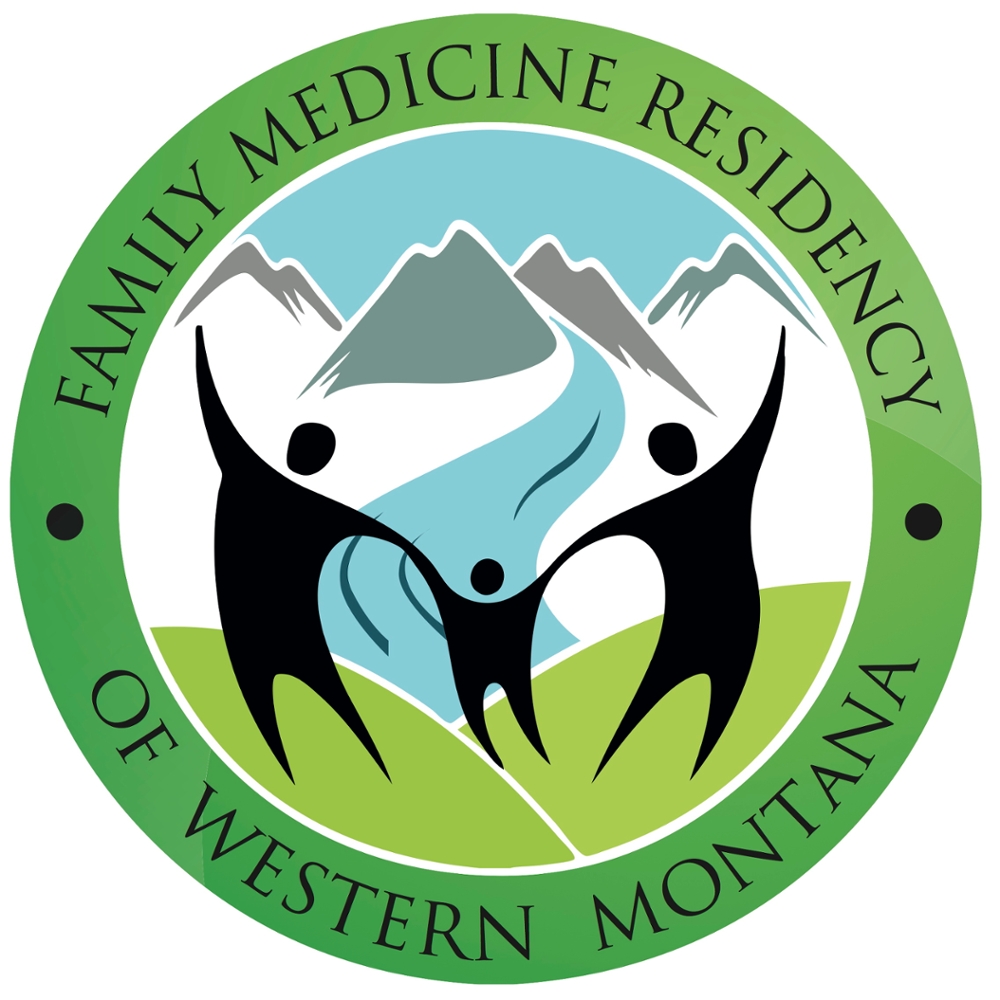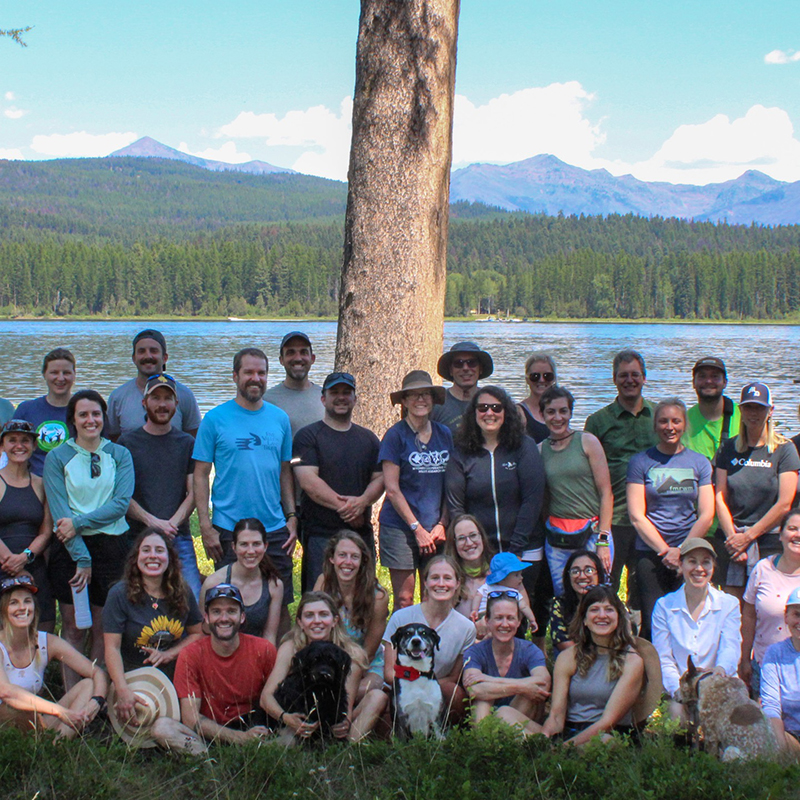Missoula Curriculum Overview
 FMRWM provides robust, unopposed training in full scope family medicine. Our curriculum is designed to prepare residents for full-scope rural or underserved practice, while allowing sufficient time and flexibility for residents to pursue individualized learning. This page describes curricular experiences for all Missoula residents. For residents in Kalispell, curricular requirements and rotational time are generally same but the timing and schedule of rotations is different in the PGY2 and PGY3 years. All residents will be in Missoula for PGY1.
FMRWM provides robust, unopposed training in full scope family medicine. Our curriculum is designed to prepare residents for full-scope rural or underserved practice, while allowing sufficient time and flexibility for residents to pursue individualized learning. This page describes curricular experiences for all Missoula residents. For residents in Kalispell, curricular requirements and rotational time are generally same but the timing and schedule of rotations is different in the PGY2 and PGY3 years. All residents will be in Missoula for PGY1.
Curriculum Details
Resident schedules consist of 13 four-week blocks (with a couple of 2-week exceptions) in the R1 year while many rotations in the R2 and R3 years are split into two 2-week blocks. R2 and R3 rotations that are contiguous 4-week blocks are bolded below.
|
|
PGY1 |
|
PGY2 |
PGY3 |
|
1 |
Intro to Family Medicine |
1/2 |
Rural |
Rural |
|
2 |
Adult Medicine |
3/4 |
Adult Medicine |
Adult Medicine |
|
3 |
Adult Medicine |
5/6 |
Adult Medicine |
Adult Medicine |
|
4 |
Adult Medicine (Admits) |
7/8 |
ICU/Geriatrics |
ER/Dermatology |
|
5 |
GYN* |
9/10 |
ER |
Geriatrics/Acute Care Selective* |
|
6 |
OB |
11/12 |
OB |
OB |
|
7 |
OB |
13/14 |
OB |
Elective* |
|
8 |
Newborn Rounding/FCM |
15/16 |
Pediatrics (Inpatient) |
Ambulatory Peds |
|
9 |
Pediatrics (Emergency) |
17/18 |
FCM* |
NICU/Elective* |
|
10 |
Surgery/FCM |
19/20 |
Cardiology* |
Sports Medicine* |
|
11 |
Addiction Medicine* |
21/22 |
Ambulatory Peds |
FCM* |
|
12 |
Behavioral Medicine* |
23/24 |
Elective* |
ICU/Elective* |
|
13 |
Elective* |
25/26 |
Elective* |
Rural/Underserved Selective |
*Vacation may be taken during these blocks
FCM - Family and Community Medicine
Residents see continuity patients at Partnership Health Center, a Federally Qualified Health Center. Continuity clinic is integrated into all rotations throughout all three years of residency with 2-4 half-days of clinic per week. FMRWM has a “clinic first” model that prioritizes residents establishing a patient panel early in residency and seeing at least 420 clinic visits in the PGY1 year. Clinic time is evenly distributed throughout the three years of training.
Partnership Health Center is a recognized Patient Centered Medical Home (PCMH) with integrated medical, behavioral health, dental, pharmacy, physical therapy and social work. Partnership is a dynamic and innovative health center. In collaboration with FMRWM, Partnership has implemented a variety of projects related to health equity, social justice and community health.
Strengths of continuity clinic:
- Complex underserved patient population, including pediatrics and OB
- Supportive, team-based inter-disciplinary learning environment
- Strong precepting by core faculty
- Opportunities for resident leadership in developing new care models and active participation in quality improvement activities
- Some unique aspects of our clinic curriculum:
- LGBTQ+ Health
- Partnership Health Center and FMRWM are proud to provide gender affirming and welcoming care to LGBTQ+ patients. We have a robust transgender medicine protocol (initially developed by residents) and residents and faculty participate in gender affirming care, including hormone therapy. Our behavioral health department also holds a regular LGBTQ+ support group for patients of the clinic.
- HIV and Hepatitis C
- HIV and Hepatitis C specialty clinics led by family physicians are integrated into Partnership Health Center with telemedicine consultation support from academic medical centers (Project ECHO). Residents have the opportunity to co-manage these patients with core faculty and experience this form of telemedicine consultation and education.This rotation has become a popular elective. Residents also routinely prescribe PrEP for HIV prevention in clinic.
- LGBTQ+ Health
This curricular area spans all three years of training, and includes a total of 10 months of curricular time: 6 months on the adult medicine teaching service, 6 weeks in the ED, one month in the ICU, 2-4 weeks in the PGY1 year dedicated to admissions, and 2 weeks of an additional Acute Care Selective (which may include adult or pediatric acute care).
Strengths of this experience:
- Dedicated teaching service, staffed by family medicine attending physicians, including core faculty and program graduates, as well as internal medicine hospitalists dedicated to resident teaching.
- Multi-disciplinary team-based model with junior and senior residents, medical students, clinical pharmacists, and pharmacy students
- Open ICU as well as a dedicated critical care rotations in the R2 and R3 years
- Specialists function as consultants, with the teaching service providing primary management
- Wide variety patient pathology with high patient acuity and excellent learning environment
- Residents have additional exposure to Emergency Medicine skills through didactic presentations and hands on, high-fidelitySimulation, along withcompletion of ACLS, PALS, and NRP during their residency. ATLS is optional. Rural rotations provide another opportunity to hone skills across the spectrum of acute care for adults
In addition to the experiences above, residents also complete 4-week rotations in Cardiology and Geriatrics. The PGY2 Cardiology rotation includes inpatient rounds and outpatient clinic with the cardiologists at Billings Clinic Heart and Vascular at Community Medical Center. The Geriatrics rotation is split between PGY2 and PGY3 year. The PGY2 2-week rotation includes patient visits at local assisted living facilities and a focused Geriatric Assessment Clinic with a local geriatrician, along with the Community Medical Center Wound Healing & Hyperbarics Center. The PGY3 2-week rotation is focused on the inpatient Palliative Care service at Providence St. Patrick's Hospital, which includes consultations and a focus on communication skills. Residents also follow continuity patients at a local assisted living facility on a longitudinal basis.
This curricular area spans all three years of training with two weeks of newborn rounding, two months of outpatient pediatrics, one month of inpatient pediatrics, one month of emergency pediatrics and two weeks of NICU. Residents also see pediatric patients in their panels during continuity clinic.
Strengths of this experience:
- High-acuity inpatient pediatric experience focused in the winter months to maximize volume
- Energetic pediatric hospitalist group committed to teaching future rural family physicians
- Outpatient experience focused in busy pediatric clinics with some pediatric sub-specialty exposure
- High volume pediatric ER
- Option to do rural ambulatory pediatric rotations in Butte, Anaconda or Hamilton
Obstetrics and Reproductive health experiences take place at Community Medical Center (inpatient obstetrics and perinatology), Partnership Health Center (longitudinal prenatal care) and outpatient women’s health clinics (gynecologic procedures). Community Medical Center is a tertiary referral hospital for obstetric care for Western Montana and bordering areas of Idaho. This curricular area spans all years of training, including five months of inpatient OB and one month of Gynecology, with a focus on procedures and reproductive health. In addition to the core obstetrics and reproductive health curriculm, our program offers optional tracks in Advanced Obstetrics and Reproductive Health.
Strengths of this experience:
- Resident coverage of Labor and Delivery, with a complex OB population
- Work with a variety of providers, including residency faculty and community family physicians, obstetricians, and perinatologists
- Overnight call coverage in the R2 and R3 years allowing increased autonomy and independence
- Excellent OB volume: 80-100 vaginal deliveries and 20-30 c-section assists for residents in the OB track; 30-60 vaginal deliveries and 10-30 c-section assists for non-OB track residents.
- Gynecologic procedural training on the rotation as well as regularly in continuity clinic, including LARCs, MVA, EMB, and colposcopy
- Strong reproductive health curriculum including optional training in medication and procedural abortion as well as a dedicated track
- Advanced Obstetrics Track
- Reproductive Health Track and additional curriculum details
FMRWM has a longitudinal orthopedic curriculum. Residents work one-on-one with an orthopedic surgeon in a non-operative consult clinic at Partnership Health Center throughout all years of training. The experience focuses on common musculoskeletal injuries and complaints, x-ray interpretation, joint injections, physician directed rehabilitation, and non-operative fracture management. Orthopedic didactics occur on a quarterly basis provided by orthopedic surgeons and core faculty members. Our sports medicine rotation in the PGY3 year includes orthopedic clinic time and work with physical therapy faculty at the University of Montana. Longitudinal team coverage and sports event coverage are available.
